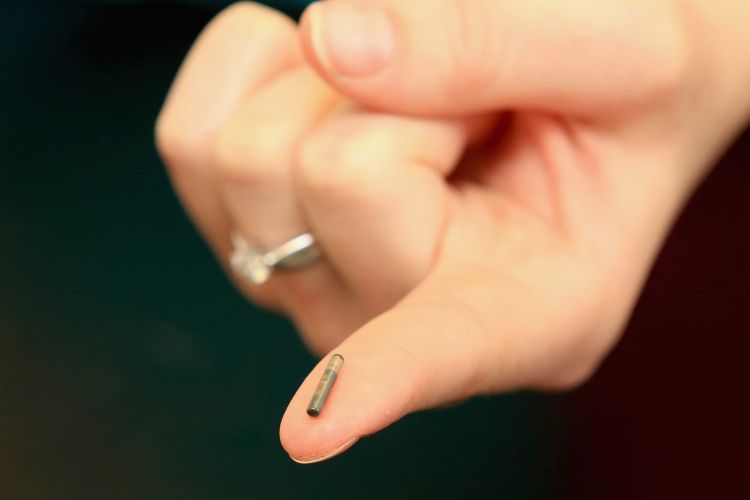"I'm a person, not a number" - why microchipping staff is a sinister step too far

Yesterday it emerged that some major UK companies are preparing to microchip their employees using the same technology implanted in household pets.
According to media reports, a Swedish company that provides human chip implants is in talks with UK legal and financial firms to implant staff in order to “boost security and stop them accessing sensitive areas” .
It’s since been reported that UK firm BioTech has already fitted 150 implants in the UK, including at some financial and engineering firms.
The news comes just weeks after the TUC published a report into surveillance at work.
It revealed over 50 per cent of workers think their employer is monitoring them at work – and that many feared new technology was going to make workplace monitoring even worse.
Workers were right to be paranoid
Trawling social media and tracking toilet breaks is bad enough, but the news on microchipping shows just how far some bosses are willing to go to control their workers.
We’d like to hear what security concerns could possibly justify the use of such technology on staff.
Because it’s hard to see how microchipping staff as we would our pets is the simplest, easiest and least intrusive way to guarantee company security.
And given each chip costs between £70 and £260 per person, microchipping is hardly justifiable on a cost basis either.
So what’s really going on here?
Well, microchipping would give bosses even more power and control over their workers.
Some employers are already making staff wear location-tracking devices.
Microchipping would allow them to monitor their every move even more accurately.
It could also be used to stockpile surveillance data on employees they don’t like, allowing bosses to micromanage staff out of the company.
And it would further erode dignity and right to privacy in the workplace.
We’ve already head stories of employees being forced to justify the length of their toilet breaks - and of female workers on their periods in Norway having to wear red bracelets to account for extra time.
And we know that some employers are also using facial recognition technology to record emotional reactions.
Such intrusive monitoring is likely to become more common with microchipping.
How have workers reacted?
Workers have expressed outrage on our social media feeds since the story broke last night.
It reminded many of Orwell’s dystopian novel 1984, where Big Brother watches every move people make.
They felt insulted that staff were being treated in the same way as household pets, with a microchip implant to make sure they don’t get ‘lost’ at work.
And they were furious that bosses were treating their employees are property rather than people. As one person rightly said:
“I’m a person, not a number”
We agree that asking people to be microchipped at work is a sinister step too far.
And there’s an obvious risk that this sort of technology could be misused and put workers in danger.
That’s why we want a requirement on employers to consult with staff before introducing any new forms of surveillance.
Employers must also justify such a move fully.
Clear workplace policies need to be negotiated with unions to set out where staff can use workplace technology for private use and where there are restrictions in place.
Intrusive surveillance undermines trust in the workplace by making people feel they’re always being watched.
So instead of microchipping their workforce, bosses need to start engaging with staff and unions to make new technology work for everyone.
Stay Updated
Want to hear about our latest news and blogs?
Sign up now to get it straight to your inbox
